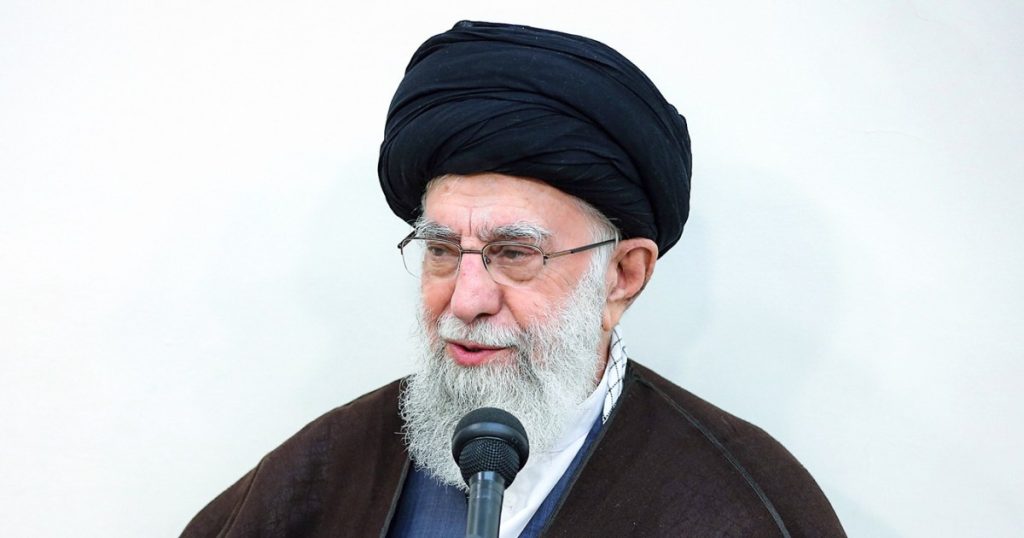Iran’s supreme leader, Ayatollah Ali Khamenei, addressed senior military leaders and dismissed discussions about the effectiveness of Iran’s recent drone-and-missile attack on Israel. Despite launching a significant assault, few projectiles made it through to their targets. Khamenei’s comments did not address the Israeli retaliatory strike that occurred on Friday in the city of Isfahan, where air defenses were activated and commercial flights were grounded across the country. Analysts believe that Iran and Israel are attempting to reduce tensions following a series of escalatory attacks as the conflict between Israel and Hamas in Gaza continues to inflame the region.
During the meeting attended by Iran’s top military officials, Khamenei emphasized that the main focus should be on the emergence of the Iranian nation and military’s will in an important international arena. He stated that debates about the number of missiles fired or their impact on the target were of secondary importance. Iran had launched drones, ballistic missiles, and cruise missiles aimed at overwhelming Israel’s air defenses in the April 13 attack, marking the first time a foreign power had launched an attack on Israel since the 1991 Gulf War when Saddam Hussein targeted the country with Scud missiles. However, Israeli air defenses, with the support of the U.S., the UK, and Jordan, successfully intercepted most of the incoming fire.
Satellite images analyzed by The Associated Press revealed that the Iranian attack caused minor damage at the Nevatim air base in southern Israel. The attack resulted in a chunk being taken out of a taxiway, which Israel promptly repaired. Iran’s attack was reportedly in response to an Israeli strike on April 1, targeting a consular building next to the Iranian Embassy in Damascus, Syria. This strike resulted in the deaths of two Guard generals and others. The ongoing tit-for-tat attacks between Iran and Israel have raised concerns about escalating tensions in the region, especially with the conflict between Israel and Hamas in Gaza intensifying.
The relationship between Iran and Israel has been marked by a shadow war for years, characterized by covert operations and occasional direct confrontations. The recent drone-and-missile attack by Iran underscores the ongoing tensions between the two regional rivals. Despite attempts to dial back tensions, both countries are engaged in a strategic competition for influence in the Middle East. The involvement of external actors, such as the U.S. and the UK, in supporting Israel’s defense against Iranian attacks adds another layer of complexity to the situation.
The latest series of attacks between Iran and Israel come against the backdrop of the Israel-Hamas conflict in Gaza. The escalation of violence in Gaza has further destabilized the region and raised concerns about the potential for broader conflict. The international community has called for de-escalation and diplomatic efforts to address the root causes of the conflicts in the Middle East. The ongoing tensions between Iran and Israel, coupled with the volatile situation in Gaza, highlight the complex dynamics at play in the region and the challenges of achieving lasting peace and stability. As both sides navigate the delicate balance of power and influence, the risk of further escalation remains a significant concern for regional stability.













